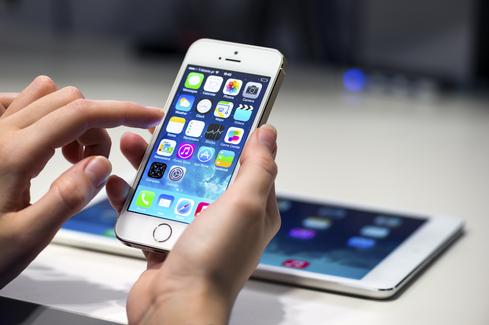Tim Cook Talks Artificial Intelligence, iPhone's Future
Marking the five-year point as the head of Apple, CEO Tim Cook spoke to the Washington Post about tax policy, the future of smartphones, and how the company plans to integrate artificial intelligence with its future projects.


10 iPhone, iPad Apps For Data Nerds
10 iPhone, iPad Apps For Data Nerds (Click image for larger view and slideshow.)
Apple CEO Tim Cook was the subject of an in-depth interview published over the weekend in The Washington Post in which he talked about a wide range of issues, including augmented reality (AR) and artificial intelligence (AI), the future of the iPhone, and the company's North Star.
In the interview, Cook dismissed the idea of the iPhone accounting for two-thirds of Apple's revenues being problematic, calling the smartphone's dominance a privilege and expressing his belief that one day, every person on earth will own a smartphone.
Cook also defended the company's progress in AI technology, pointing to the expanding capabilities of Siri, the digital assistant that Apple launched in 2011.
Apple is opening up Siri to third-party developers so the technology can be used by other applications -- such as Uber or Lyft, as Cook pointed out -- to help users complete tasks faster and more efficiently.
Earlier this month, the company reportedly bought Turi, a Seattle-based startup company and the latest purchase in a string of acquisitions aimed at bolstering its machine learning and AI capabilities.
When asked about AR or virtual reality (VR), Cook was coyer, referring to it as a "core technology" but said little else.
"I think AR is extremely interesting," said Cook. "So, yes, it's something we're doing a lot of things on behind that curtain that we talked about."
While rumors continue to swirl around Project Titan, widely regarded as Apple's foray into the self-driving, electric vehicle space, Cook dodged the question, stating simply that the company is involved in all sorts of research and development projects. Cook told the Washington Post:
We have ramped up R&D because we are heavily investing in the future -- both in current product lines and things that aren't visible as well, including in services. In due time, some of those things will be visible. But there will always be other things that will replace those things that are invisible.
Cook was also ready to admit mistakes made so far during his five-year tenure, including the disastrous and widely mocked rollout of the company's mapping application.
"Maps was a mistake. Today we have a product we're proud of. [But] we had the self-honesty to admit this wasn't our finest hour and the courage to choose another way of doing it," Cook said. "That's important. It's the only way an organization learns."
[Read more about Tim Cook and Apple's future.]
Cook also admitted hiring former Dixons CEO John Browett to run Apple's retail operations was a mistake, which he termed "clearly a screw-up."
As he has done in the past, Cook also staunchly defended Apple's tax policies, saying what the company pays and the way it structures its finances are completely within the current tax laws.
"Honestly, I believe the legislature and the administration will agree that it's in the best interest of the country and the economy to have tax reform," he said.
Aside from the business of discussing the iPhone, tax policies, and AI technologies, Cook also offered a few more personal insights into running one of the world's largest and most highly visible companies, describing the role of CEO as lonely at times.
"The adage that it's lonely -- the CEO job is lonely -- is accurate in a lot of ways," Cook said. "I'm not looking for any sympathy. You have to recognize that you have blind spots. We all do."
About the Author
You May Also Like






